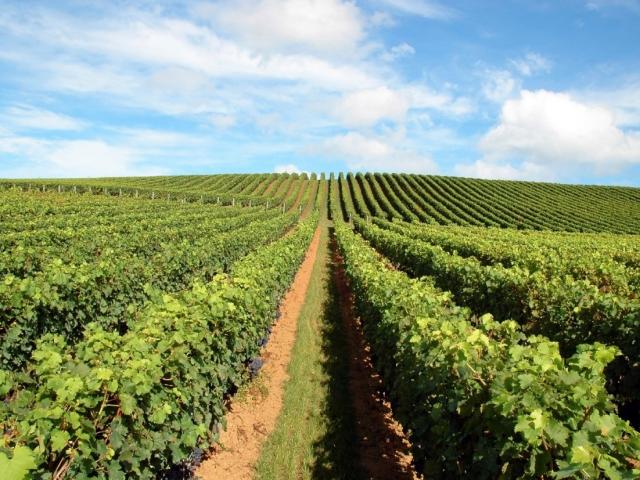New Regional Program approved

The funding is used to conduct extension activities that are deemed priorities by industry. Starting 1 July 2017, three activities will begin, these include:
- Identifying and understanding clonal material
- Evaluating and demonstrating alternative varieties
- Promoting innovative, regionally appropriate winemaking practices
Identifying and understanding clonal material
The WA Wine Industry Technical Committee identified a shortage in the current understanding and identification of potential superior clones suited to Western Australian conditions.
Anecdotally there are a number of sub-optimum clonal plantings of key varieties in WA which is restricting the quality potential of regional producers. There are a number of clones available through the State Germplasm Collection and private nurseries that have the potential to improve the future quality of WA wines. Enabling growers with an improved understanding of the impact of clonal selection on quality is crucial. Grape growers and winemakers need to be informed of clonal traits so they can match clone to site and to desired wine style.
A desktop review of the available clones of Chardonnay, Cabernet Sauvignon, Merlot, Shiraz and Tempranillo in WA will be conducted. This will include detailing viticultural and wine quality attributes in addition to a list of superior clones which are not available in the state (identifying importation opportunities). This information will be made accessible to all industry stakeholders.
In addition, a forum will be held to compliment this packaged information with presenters from Department of Agriculture and Food Western Australia (DAFWA), Western Australian Vine Improvement Association (WAVIA), private nurseries and growers sharing their experiences and technical information on specific clones. A wine tasting of experimental batches and commercial sized trials will provide an interactive component to the forum.
Fruit from at least three 'new' Shiraz clones will be made at a commercial winery and at DAFWA for comparison tasting and discussion at the forum.
Key objectives
- Improve industry understanding of the importance of clonal selection.
- Identification of superior clones of Chardonnay, Cabernet Sauvignon, Merlot, Shiraz and Tempranillo suited to WA viticulture.
- Identify a deficiency in the State public and private nurseries of superior clones and prioritise their importation.
Details of workshops will be provided later in the year.
Evaluating and demonstrating alternative varieties
Approximately 80% of Western Australia's wine grape production comprises of five varietals (Sauvignon Blanc, Cabernet Sauvignon, Chardonnay, Shiraz and Semillon). Reliance on such a small collection of varietals to sustain the profitability of the industry while considering challenges such as climate change and market trends, poses significant risk for the industry.
One tool available to growers to ensure optimum production while addressing issues such as increasing temperatures, compressed growing seasons, limited water availability is through varietal selection.
This project aims to change the way growers think when considering the varieties that best suit their region. Pairing varieties with changing climates has the potential to provide growers with the ability to improve their sustainability.
DAFWA will continue to collect vine performance data, small lot wine making and sensory analysis of approximately 10 varieties that are currently being grown at the WA Department of Education, Harvey Agriculture College in collaboration with Western Australian Vine Improvement Association (WAVIA). This activity will build on a 2016/17 Regional Program activity and will include another field walk to allow producers to inspect the characteristics of the varieties in the vineyard and taste the wines.
Additionally, two regional forums will be held to present the information collected over the two seasons, taste the wines from the evaluation block and also commercial examples of the varieties already being produced in WA.
Key objectives:
- Present a selection of alternative varieties that have shown high potential under WA growing conditions.
- Extend expert advice on technical aspects to these identified varieties complimented with an understanding of market trends.
- Provide a forum where producers can network with key stakeholders within the value chain specifically focused on exploring the growing alternative variety market.
Details concerning the field walk and the forums will be provided in the near future.
Promoting regional innovative winemaking practices
Regional winemakers can risk developing insular approaches to winemaking techniques, technologies and philosophies due to limited exposure to such aspects. This activity aims to promote regional collaboration and encourage innovation towards winemaking.
This will be achieved by conducting three regional wine tasting forums (Swan Valley, Margaret River and Great Southern) that focus on a specific white and red variety that is of significance to each of the respective regions. Regional winemakers will be invited to attend and bring samples of innovative approaches they have trialled themselves and present their findings.
Additionally, each forum will feature a guest winemaker from the eastern states who is considered as a leader/innovator in comparable regions from where the forum will be held. This will allow winemaker participants to discuss and taste wines made in ways that they may be unaccustomed to and encourage experimentation to improve their product quality and style.
Key objectives:
- To strengthen regional collaboration by winemakers sharing technical information with each other.
- To improve the quality of varietal wines through experimentation and diversification of styles.
- To bring an innovative and leading winemaker from outside the state to discuss and encourage alternative winemaking techniques and philosophies.
Details regarding these workshops will be provided in the near future.
DAFWA will be coordinating these activities, for further information contact Richard Fennessy, Research Officer, on +61(8) 9780 6219.
